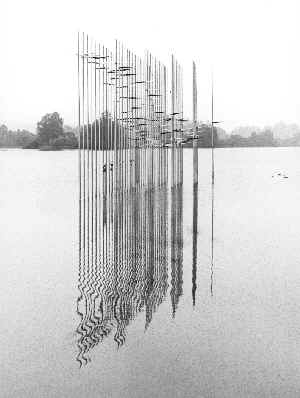News from Finland
In Finland, the main health science libraries are administered by two
separate ministries. The university medical faculty libraries and health science
polytechnics (mostly nursing schools) are governed by the Ministry of Education (ME) and
hospital and certain research institute libraries by the Ministry of Health and Social
Affairs (MHSA). This has caused a situation where all health sciences libraries do not
have the same library and information service facilities.
| The ME has moved quickly to acquire joint licenses of databases and
electronic journals for university libraries. This has left all the MHSA libraries out,
including the hospital libraries. This ommission is now under discussion and the MHSA has
set up a task force to acquire access for MHSA libraries to the same joint licences as the
university libraries have.
The time seems to have come, when two ministries in Finland are ready for cooperation.
Simultaneously with the ministries' activities, regional projects are being carried out to
achieve similar goals.
So suddenly the time is ripe for all sorts of cooperation in a country where people are
not in the habit of speaking too much to
each other.
A project plan on Eastern Finland Information Network is being created with the
financial help of EU, to design and implement a network in all fields of life as a
cooperation for all relevant organisations in Eastern Finland. A subproject of this is the
information network of hospital libraries, whose situation varies much from hospital to
hospital. |
|

| 'Art in the lake, Kuopia, Finland' |
|
There are four hospital libraries in the area concerned and in addition
the university hospital library. A librarian from the university hospital library will
initially conduct a survey of the present situation. The emphasis will be very much on
educational issues since we cooperate with the MHSA project on the joint licenses of
databases and electronic journals whereas the network will be taken care of by another
project concentrating on electronic patient records in the region.
The need for educating our users at hospitals is a crucial issue.
Experience has shown that modern information technology is not always as easy as the
marketing people tell us, and in addition, professionals in clinical work do not always
have the time to learn to use databases and electronic journals by themselves. Another
obstacle is also the fact that not everyone has a PC of one's own at hospitals; usually
there are one or two PCs at a department and these are mostly used for keeping patient
records.
The education in medical specialties is also being redesigned, the
training duties being spread out to central hospitals in the respective regions. These
central hospitals only get the right to train if their information services are at a
certain level. Our Eastern Finland project also aims to forward suggestions to hospitals
on how to improve their library services.
From the libraries' point of view, this is the first time we really are
moving towards building up networks between different organisations. We also feel that
this is the first time that hospitals, universities and other communities are able to see
the value of libraries as the proper place for coordinating information services.
The author is interested in knowing whether there are corresponding
projects going on in hospital libraries in Europe. Please contact liisa.salmi@kuh.fi.
Liisa Salmi
Highlight on Finland: Discussion Forum
- The Romanian Situation
Liisa Salmi's article describes a situation which bears a striking
similarity to the situation of health sciences libraries (HSL) in Romania. Here too, HSLs
are administered by two ministries: the Ministry of National Education, governing medical
university libraries - in Romania we have separate universities for health sciences
(medicine, dentistry, pharmacy, nursing etc.) -, and the Ministry of Health, governing
hospital libraries and especially Medical Documentation Centres serving the health
professionals in a region or county. Before 1990 libraries belonging to the health system
were relatively well funded from the budget. The National Documentation Centre in
Bucharest (the capital city) was the most resourceful and considered as a national medical
library. Since 1990, due to the economic crash, the Ministry of Health has hardly had a
budget to maintain basic health care in hospitals, so the situation of these libraries has
deteriorated to a point of no return. At present, medical university libraries are, by
far, better budgeted, equipped and resourceful (including Internet access for users,
electronic subscriptions etc.).
Similarities with Finland stop here, though. The solution for the
information needs of the health professionals has come somewhat naturally. They have all
"migrated" to the university libraries - the closest available to their
residence. In our own library, a university library, 36% of its registered users are
outwith the university. They are charged an "external user" fee for a library
pass, $10 per annum. (I must say at this point that the average monthly salary here is
still less than $100). Negotiations are under way, by which the regional health board
would pay a flat annual fee to the university for the use of library facilities. This
would allow our library to extend its outreach services to other smaller towns in the
region, especially by developing telecommunications and electronic access, and strengthen
its branch libraries - at present we have 45 hospital branch libraries!
Recently a project has been approved by the Ministry of Education to
provide extra funding for special libraries (including health sciences ones) based on a
bidding system. I still think this is a stop-gap solution, because (1) it does not really
solve the information needs of the health professionals in remote areas and (2) Having a
university library concentrate too much and too hard on health care needs would mean
inadequate fulfilment of its mission. When the health system will be back on its two feet
(which is still a long way away), I think we may well follow the example of Finland.
Ioana Robu

Contents No. 49
|

